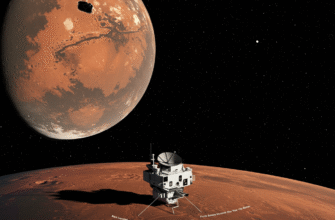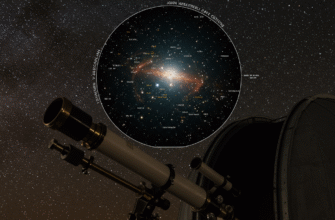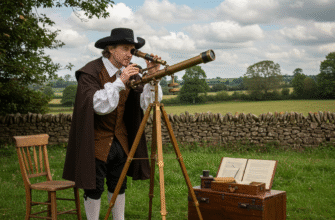While the allure of reading destiny in the stars held immense power in the ancient world, casting a spell over emperors and common folk alike, it wasn’t a universally accepted truth. Alongside the astrologers, or Chaldeans as they were often called, walked figures who squinted at the celestial pronouncements with a healthy dose of skepticism. These weren’t just casual naysayers; many were respected philosophers and thinkers who raised pointed questions, laying a groundwork for critical thought that echoes even today. The idea that our lives are meticulously charted by distant, glittering orbs struck some as, well, a bit far-fetched, even thousands of years ago.
The notion that the heavens dictated earthly events was deeply woven into Mesopotamian culture, later finding fertile ground in Greece and Rome. Yet, even as complex horoscopic astrology developed, critical voices began to emerge, questioning its foundational principles and practical applications. These early skeptics weren’t necessarily denying any celestial influence, but they pushed back hard against the deterministic and highly specific claims of individual fate being read from the skies.
The Greek Thinkers Who Dared to Doubt
Long before professional debunkers had websites, Greek philosophers were sharpening their logical tools against practices they found wanting. One of the most formidable early critics was Carneades, a philosopher from the second century BCE and head of the Platonic Academy, known for his powerful skeptical arguments against many dogmatic beliefs, including divination and astrology.
Carneades did not leave written works, but his arguments were preserved by later writers. He famously posed the “twin problem”: how could astrology account for the vastly different fates of twins, born at virtually the same moment and thus under the same celestial configuration? One might live a long and prosperous life, the other die in infancy or obscurity. He also pointed to major disasters, like a shipwreck or a devastating battle, where countless individuals with wildly different birth charts perished simultaneously. If the stars governed individual destiny, how could such collective events be explained? Surely, Carneades argued, if everyone who died in the Battle of Cannae had their horoscopes cast, they wouldn’t all show an imminent, violent death on that specific day. His reasoning was practical and observation-based, challenging astrologers to reconcile their theories with the messy reality of human experience.
Another significant voice was Panaetius of Rhodes, a Stoic philosopher also from the second century BCE. While Stoicism often accommodated a belief in fate and cosmic sympathy, Panaetius notably rejected astrological divination. His stance was influential, particularly on later Roman thinkers. He argued that the astrologers’ claims were too broad and their methods too imprecise to be credible. For him, virtue and reason, tenets of Stoic philosophy, were more reliable guides in life than planetary positions.
Cicero’s Hammer: A Closer Look
Perhaps the most extensive surviving ancient critique of astrology comes from the Roman statesman and philosopher Marcus Tullius Cicero in his work “De Divinatione” (On Divination), written around 44 BCE. In this dialogue, Cicero has his brother Quintus defend various forms of divination, including astrology, while he himself, through the character of Marcus, systematically dismantles them.
Cicero, borrowing from Carneades and Panaetius among others, unleashed a barrage of arguments. He questioned the very premise of stellar influence: how could stars, so immensely distant, exert such specific and differentiated effects on individual lives? He highlighted the “problem of latitudes,” noting that people born at the same moment but in different geographical locations (say, Rome versus Alexandria) would have different rising signs and planetary houses, yet astrologers often ignored this complexity or failed to account for it consistently. What about those born in unexplored lands, he mused, for whom no horoscopes were cast? Were their lives devoid of fate?
Cicero, in his “De Divinatione,” did not just offer vague doubts; he presented a structured refutation of astrological claims. He systematically challenged the causal link between celestial bodies and human affairs, questioning the empirical evidence and logical consistency of astrological predictions. This work remains a cornerstone for understanding the intellectual resistance to astrology in antiquity.
Furthermore, Cicero pointed to the sheer absurdity of linking human traits or destinies to the arbitrary naming and imagined figures of constellations. Why should a grouping of stars vaguely resembling a scorpion or a goat have any bearing on someone’s personality or future profession? He also touched upon the argument from heredity: children often resemble their parents in looks and temperament, an observation seemingly independent of their birth charts. He also raised concerns about free will, though this was a complex issue as many philosophical schools of the time embraced some form of determinism.
Roman Voices Amplifying Skepticism
The tradition of skepticism continued into the Roman Empire. Favorinus of Arles, a philosopher and orator of the early second century CE, was renowned for his sharp intellect and critical stance on astrology. Though much of his work is lost, references by Aulus Gellius indicate Favorinus offered sophisticated arguments, likely expanding on earlier critiques. He is said to have emphasized the practical failures of astrology and its inability to predict specific, verifiable events accurately.
A towering figure in the history of skepticism is Sextus Empiricus, a physician and philosopher active in the late second or early third century CE. His work “Adversus Mathematicos” (Against the Professors), includes a section specifically titled “Against the Astrologers.” Sextus launched a comprehensive assault, arguing from multiple angles. He questioned the very possibility of obtaining the precise astronomical data required for casting an accurate horoscope. Could the exact moment of birth truly be determined with such split-second accuracy? And what about the moment of conception, which some argued was more critical? The divisions of the zodiac, the meanings attributed to planets, the houses – all these, Sextus argued, were human conventions, not natural truths.
Sextus Empiricus also explored the problem of “unobservable entities.” How could astrologers prove that these invisible influences even existed, let alone chart their effects? He pointed out that if astrology were a true science, its practitioners should agree, yet different astrologers often gave conflicting interpretations for the same birth chart. He highlighted the vagueness of astrological predictions, which could often be interpreted to fit almost any outcome. His methodical deconstruction aimed to show that astrology lacked a sound empirical or logical foundation.
Even Pliny the Elder, the first-century CE author of the encyclopedic “Natural History,” who was often quite open to wonders and marvels, expressed some reservations. While he accepted some general celestial influences on tides or agriculture, he was skeptical of the highly individualized and fatalistic claims of horoscopic astrology, deeming some of its practitioners charlatans who preyed on human credulity.
Common Threads in Ancient Anti-Astrological Arguments
Across these centuries, several recurring themes emerged in the arguments against astrology. These were not simply dismissive statements but formed a coherent body of criticism:
- The Argument from Twins: As highlighted by Carneades, the different lives of twins posed a direct challenge to the idea of identical horoscopes yielding identical fates.
- The Argument from Mass Events: Battles, plagues, shipwrecks, and earthquakes affected large groups of people with diverse horoscopes, suggesting that individual charts were irrelevant in such circumstances.
- The Argument from Geographical Variation (or Lack Thereof): If people born at the same time in different parts of the world experienced different destinies despite similar celestial configurations (or vice versa), how could astrology be universal? Conversely, if the local horizon was key, why did people born under the same local sky experience such different lives?
- The Argument from Unknown Peoples: What about cultures unaware of Chaldean astrology? Were their lives less fated, or did the stars influence them unknowingly and uninterpretably?
- The Problem of Precision and Observation: Critics questioned whether the exact moment of birth could be known accurately enough, and whether the positions of all relevant celestial bodies could be determined with the necessary precision.
- The Arbitrary Nature of Signs and Interpretations: The division of the zodiac into twelve signs, their names, and the qualities attributed to them and the planets seemed to be human constructs rather than objective realities.
- The Argument from Animal Destinies: If stars dictated human fate, why not animal fate? Yet, no one was seriously casting horoscopes for sheep or dogs, which shared the same sky.
- Failed Predictions and Selective Memory: Skeptics pointed out that astrological predictions often failed, and successes were often due to vagueness or coincidence, with failures conveniently forgotten.
Moreover, the cultural specificity of astrology was a point of contention. Different cultures had different astrological systems, or none at all. If astrology was a true science reflecting cosmic realities, critics wondered why it wasn’t universally consistent. The Greeks inherited and adapted Mesopotamian astrology, but other sophisticated cultures, like the Egyptians for a long time, had different or less prominent systems of astral divination focused more on collective rather than individual destiny through stars.
These ancient critiques demonstrate that doubts about astrology are not a modern invention born of scientific enlightenment. From the bustling agora of Athens to the forums of Rome, sharp minds questioned whether human destiny was truly written in the stars. They employed logic, empirical observation, and a demand for consistency, challenging astrologers to defend their art against very terrestrial concerns. While astrology continued to flourish, these skeptical voices ensured that the celestial pronouncements did not go entirely unchallenged, reminding us that critical inquiry has always been a vital part of human intellectual history.









